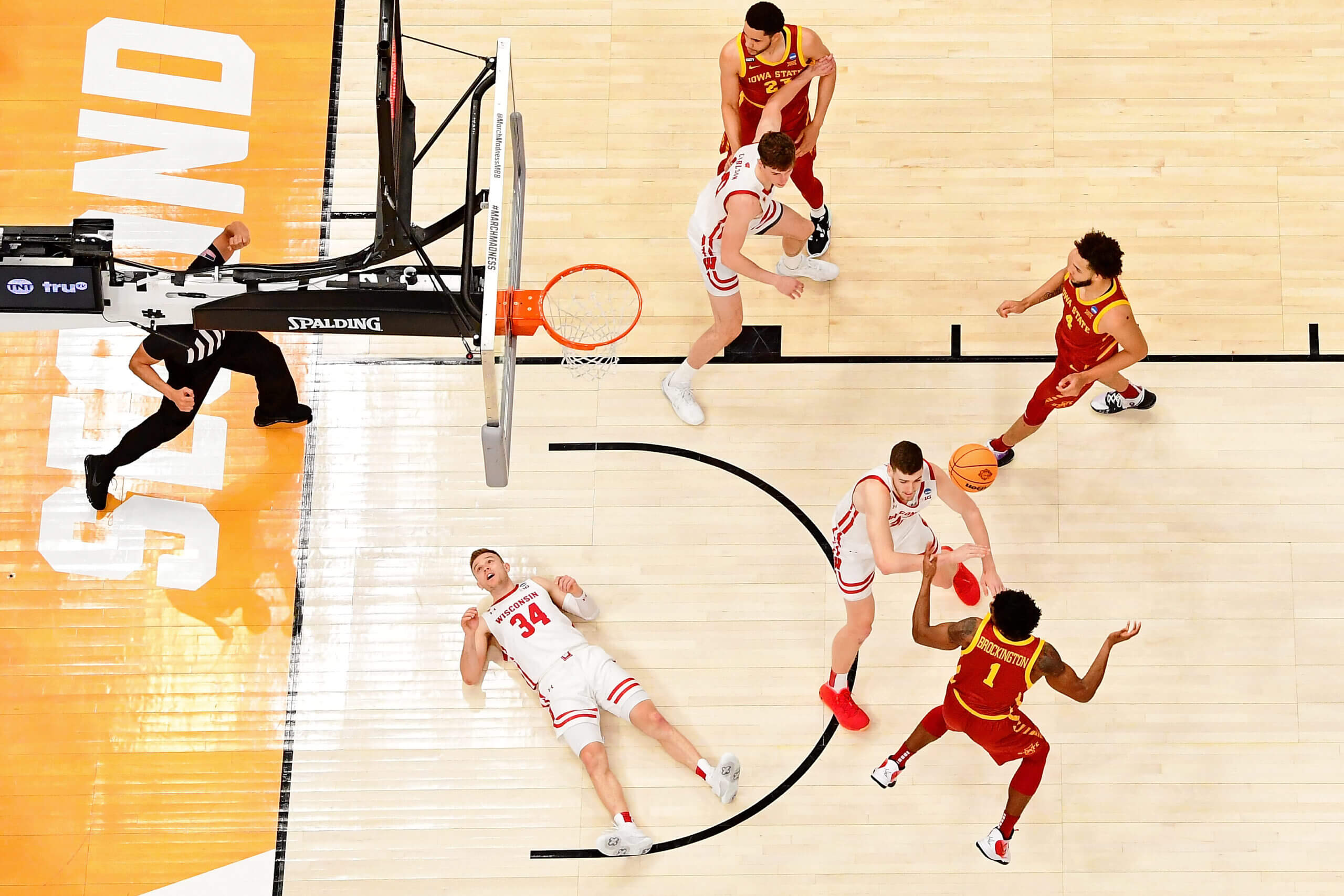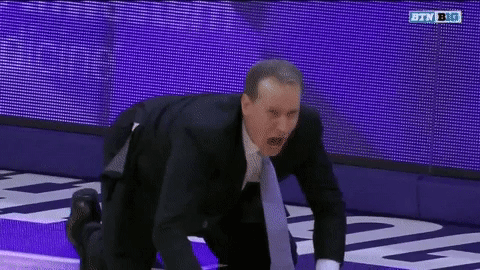The technical foul was also the fault of the referees, compounding an obvious error.
Collins argued an obvious missed call. He neither impeded play, nor did he block the official from running down the floor. A good referee has to let that argument go. They screwed up twice.
1) No, the technical foul was
not "the fault of the referees." There is no provision by rule for entry on court by any non-playing personnel during a live ball. Coach Collins' action was surely from the sincerest motives and his grievance, even based on the coordinator's words, was justified. Still, he should have stayed outside the boundaries. There was no provision at that time for reversal of the no-call and passionate outrage could not justify his coming oncourt. It's close to an automatic call, and the observer/coordinator would have marked the official downward for
not administering the technical in that situation.
2) For that matter, NU's coach was screaming at the wrong person, who was in the "trail" position following play upcourt. That meant at the time of the disputed no-call, he had been in the "lead" position along the baseline. By definition, the lead is not focused on the ball near rim level , and should
never make a basket interference call. That's Officiating 101; at any moment of play there are L (lead), C (center), and T (trail) officials, and their areas of responsibility are different. The old line about "three sets of eyes out there, and none saw what happened" is fallacious. In almost all cases there had
better not be all three officials looking at the same place. It's likely that the basket interference call should've been made from the C position. That official was on the opposite side from the bench, so Coach Collins' righteous fury was directed toward someone who probably didn't even know what the bitching was about.
Interesting that tourney supervisors chose to drop all three officials from the pool for advancement, although prime responsibility for the crucial no-call lay with only one of them. That's because the old officiating mantra is "We're a team out there." There's no place for scapegoating an individual, so all three were penalized for the rest of that tournament.
No one likely wants to read any more discussion about officiating mechanics. In disclosure, suffice to say that I worked nearly 2,000 basketball games on court, and have been an appointed observer/evaluator for a good many more. In my experience few fans and not a lot of media commentators have much understanding of how officials look at games differently from those who are chiefly invested in which team wins or loses.
I loved officiating three sports over 30 years and never worked a perfect game by either my own estimate or that of appointed evaluators. I try not to offer reflexive defense of zebras on WildcatReport or elsewhere, but when there's clear misunderstanding of rule or mechanics, there's an obligation to explain how and why things are done as they are.




